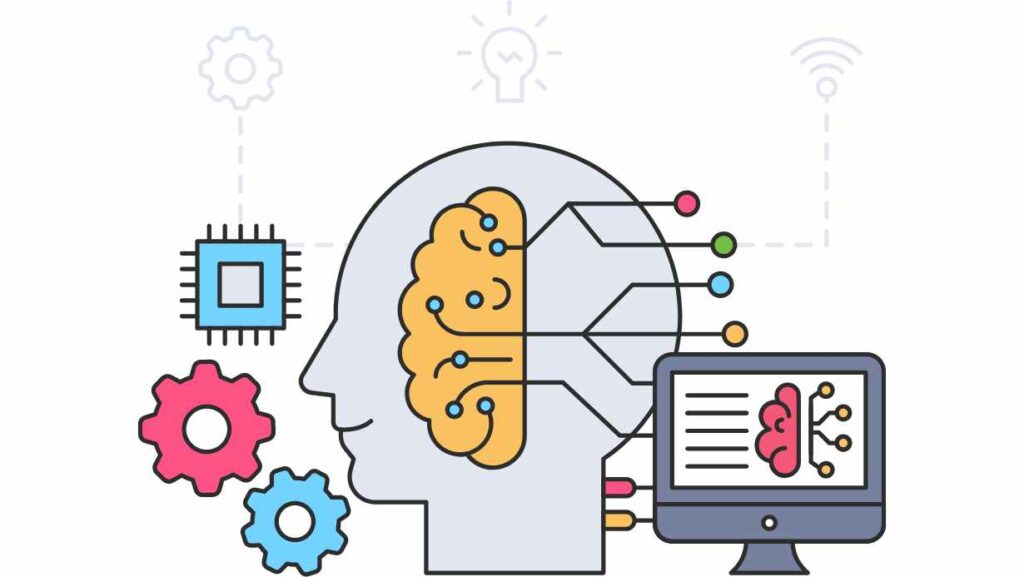Maintaining a competitive edge demands innovative strategies for making decisions, managing operations, and engaging customers. Amidst this landscape of constant evolution, the concept of leveraging machine learning for business has emerged as a powerful force. Machine learning, a specialized field within artificial intelligence, holds the potential to revolutionize the way enterprises operate. By seamlessly integrating machine learning into their workflows, companies can unlock the power of data-driven insights, anticipate market trends, automate routine tasks, and arrive at well-informed choices. This comprehensive article explores the profound influence that machine learning for business has across diverse dimensions of organizational activities.
Understanding Machine Learning

Defining Machine Learning
Machine learning is a subset of artificial intelligence that focuses on the development of algorithms and models which allow computers to learn and improve from experience. It involves training models on historical data to make predictions or decisions without being explicitly programmed. This makes it highly adaptable to changing scenarios.
Types of Machine Learning
Machine learning can be categorized into three main types:
- Supervised Learning: In this type, models are trained on labeled data, making predictions or classifications based on past examples. It’s commonly used in tasks like image recognition and spam email detection.
- Unsupervised Learning: Here, models are provided with unlabeled data and tasked with finding patterns and relationships within the data. Clustering and anomaly detection are examples of unsupervised learning.
- Reinforcement Learning: This type involves training models to make sequences of decisions, learning from rewards and punishments. It’s often used in scenarios like game playing and robotics.
Machine Learning Applications in Business

Customer Insights and Personalization
Machine learning algorithms analyze customer behaviors and preferences to provide personalized product recommendations and experiences. This leads to higher customer satisfaction and increased sales.
Demand Forecasting
Predictive models analyze historical sales data and external factors like seasonality and economic indicators to forecast future demand accurately. This helps businesses optimize inventory levels and reduce costs.
Fraud Detection and Prevention
Machine learning detects unusual patterns in transactions and behaviors, flagging potential fraudulent activities in real time. This protects businesses and customers from financial losses.
Supply Chain Optimization
By analyzing data from suppliers, manufacturers, and distribution centers, machine learning optimizes supply chain processes, minimizing delays and reducing costs.
Implementing Machine Learning: Key Considerations

Data Collection and Quality
Successful machine learning relies on high-quality, relevant data. Collecting and cleaning data is a critical step in the implementation process.
Model Selection and Training
Choosing the right machine learning model and training it with suitable data are pivotal to achieving accurate and meaningful results.
Integration with Existing Systems
Integrating machine learning into existing business systems requires careful planning to ensure seamless operation and compatibility.
Machine Learning for Business: Unveiling the Potential
Machine learning for business isn’t just a buzzword; it’s a game-changer. Here’s how:

Enhancing Customer Experience through Personalization
By analyzing customer behavior and preferences, machine learning enables businesses to deliver personalized experiences. Retail giants like Amazon leverage machine learning algorithms to recommend products based on past purchases, increasing customer satisfaction and loyalty.
Data-Driven Decision Making
Incorporating machine learning into decision-making processes enhances accuracy and efficiency. Financial institutions use predictive analytics to assess credit risks, while marketing teams optimize campaigns by analyzing consumer insights, leading to better ROI.
Streamlining Supply Chain Management
Machine learning optimizes inventory management and supply chain operations. Algorithms predict demand, reducing overstocking and minimizing stockouts. Companies like Walmart have saved billions by implementing machine learning-driven supply chain strategies.
Fraud Detection and Prevention
Financial organizations employ machine learning to detect fraudulent activities. Algorithms analyze transaction patterns to identify anomalies and prevent unauthorized access, safeguarding customer accounts and financial data.
Automating Routine Tasks
Machine learning automates repetitive tasks, freeing up human resources for higher-value activities. Chatbots powered by machine learning offer instant customer support, enhancing efficiency and responsiveness.
Improving Product Development
Machine learning aids in designing and developing products by analyzing market trends, customer feedback, and competitor offerings. This insight-driven approach increases the likelihood of launching successful products.
Predictive Maintenance in Manufacturing
Incorporating sensors and machine learning algorithms, manufacturers predict machinery maintenance requirements, minimizing downtime, reducing costs, and optimizing production schedules.
HR and Talent Management
Recruitment and talent management benefit from machine learning algorithms that analyze resumes, match candidate profiles, and predict employee attrition, enabling proactive HR strategies.
Unveiling the Benefits: How Machine Learning Transforms Businesses
The integration of machine learning into business strategies offers a plethora of benefits that foster growth, efficiency, and innovation:
- Data-Driven Insights: Machine learning extracts valuable insights from vast datasets, enabling informed decision-making and identifying hidden patterns.
- Cost Savings: Automation of tasks and processes reduces operational costs and minimizes errors, translating to improved bottom lines.
- Personalization: Businesses deliver tailor-made experiences, boosting customer satisfaction and brand loyalty.
- Efficient Resource Allocation: Optimization algorithms enhance resource allocation, whether in inventory management or workforce planning.
- Competitive Edge: Companies embracing machine learning gain a competitive advantage by staying agile and adapting to changing market dynamics.
- Innovation: Machine learning encourages innovative thinking by uncovering new opportunities and refining existing processes.
- Risk Mitigation: Machine learning detects anomalies and potential risks in real-time, allowing businesses to take proactive measures.
Overcoming Challenges in Machine Learning Adoption

Lack of Skilled Personnel
Implementing machine learning often requires specialized skills that might not be readily available in the organization. Collaboration or hiring experts can bridge this gap.
Data Security and Privacy Concerns
Handling sensitive data raises security and privacy concerns. Implementing robust security measures and complying with regulations is essential.
Change Management
Adopting machine learning involves organizational changes. Proper change management strategies help employees embrace new technologies and workflows.
Future Trends in Business and Machine Learning

AI-Powered Chatbots
Advanced chatbots powered by machine learning provide personalized customer support, answering queries and resolving issues efficiently.
Predictive Analytics
Businesses leverage predictive analytics to anticipate customer behavior, market trends, and potential challenges, allowing proactive responses.
Process Automation
Machine learning enables end-to-end process automation, streamlining operations and reducing manual intervention.
The Bottom Line: Unlocking Business Potential
Machine learning has evolved from a theoretical concept to a practical tool with immense potential. Businesses that harness its power can optimize processes, enhance decision-making, and gain a competitive edge in today’s data-driven landscape.
FAQs
Can small businesses also harness the power of machine learning?
Yes, small businesses can benefit from machine learning. There are user-friendly tools and platforms available that allow businesses of all sizes to leverage machine learning for tasks like customer insights, sales predictions, and process automation.
What are the risks associated with integrating machine learning into business processes?
Risks include potential data breaches, incorrect predictions leading to poor decisions, and the need for ongoing maintenance and updates. It's crucial to address these risks through robust security measures and continuous monitoring.
How can businesses ensure the ethical use of machine learning?
Ethical use of machine learning involves transparent data practices, avoiding biased algorithms, and respecting user privacy. Implementing ethical guidelines and regularly auditing models can help ensure responsible use.
What role does data play in the success of machine learning applications?
Data is the foundation of machine learning. High-quality, relevant data is necessary for training accurate models. Regularly updating and refining the data ensures that the models stay effective in evolving business environments.
See Also: How Can RPA Streamline Business Processes and Improve ROI?










